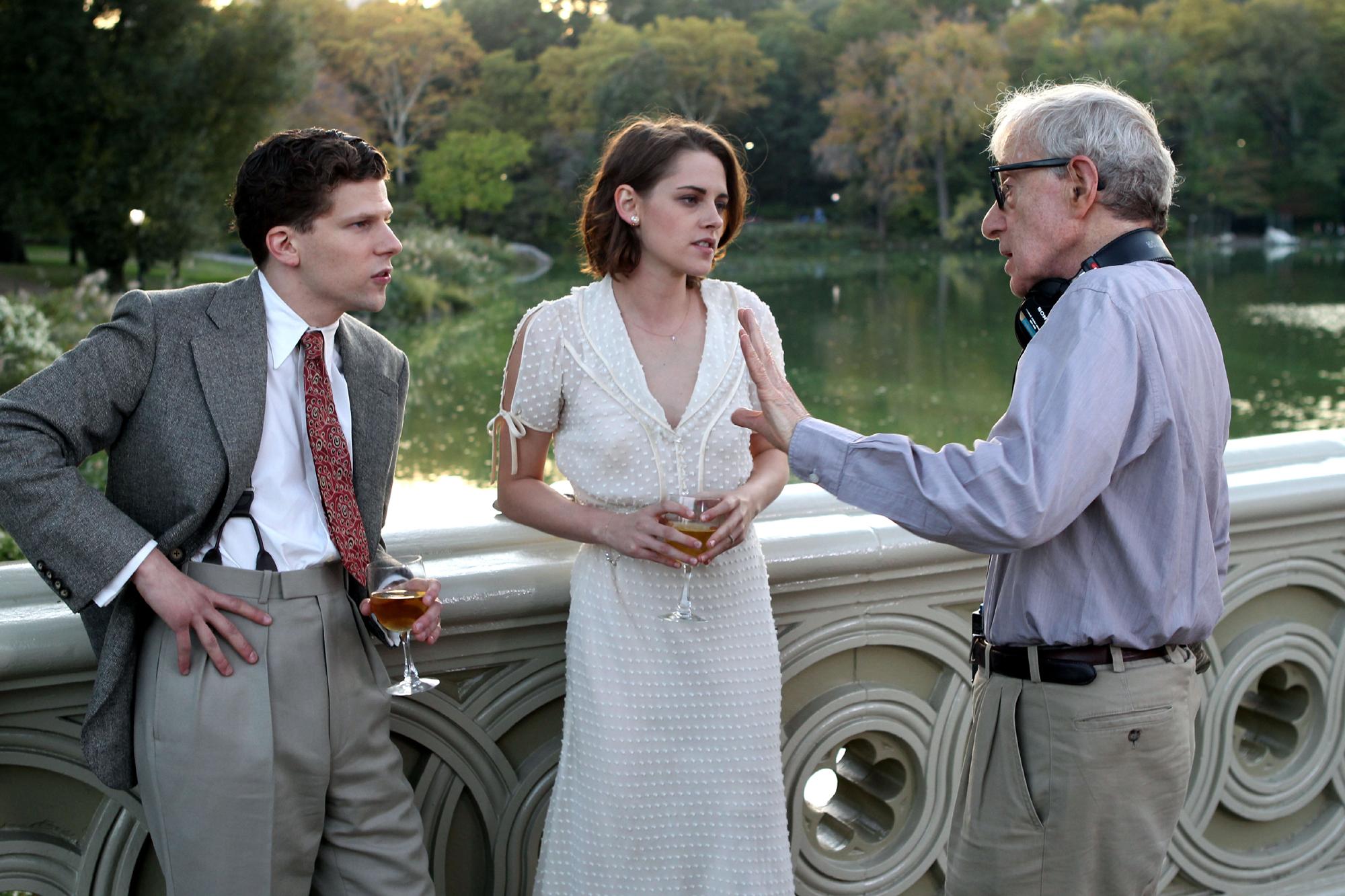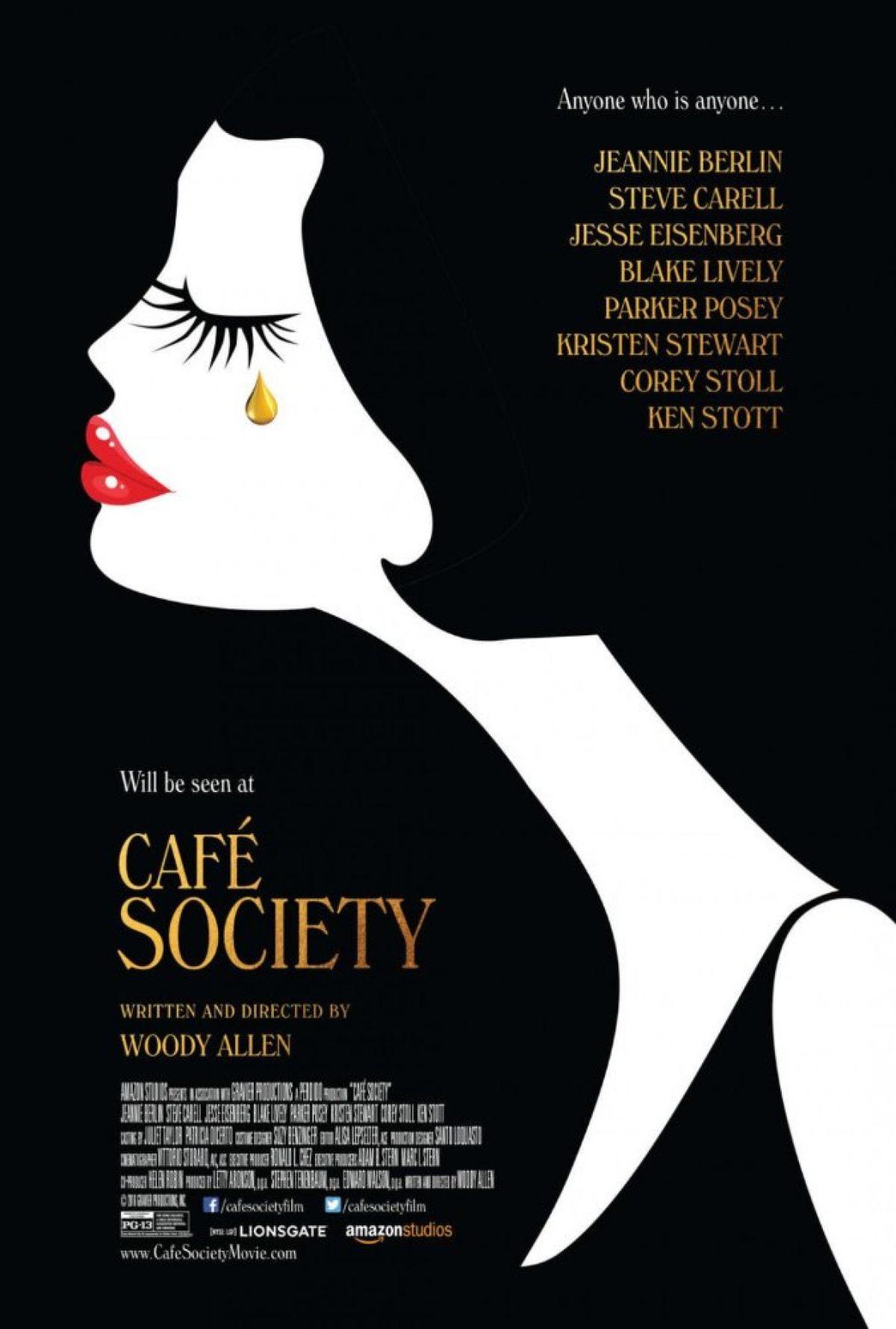Cafe Society review: In Jesse Eisenberg, Woody Allen has found his acting surrogate
But in this movie about making movies, it's too tangible that a movie is being made

I always get excited to watch a new Woody Allen film, not in spite of his prolificness but because of it. Though you can’t help but wish he’d be a bit more selective and only pursue his really strong scripts, there’s a thrill in his ‘well yes, here’s another one, let’s see what you think’ approach.
His latest, Café Society, is set in the 1930s in the only two cities young aspiring creatives back then cared about (you know their names) and centres on a young man trying to make it in both the movie business and the not-getting-caught-up-about-your-ex business.
This man, Bobby Dorfman, is essentially played by Woody Allen channelling the body of Jesse Eisenberg. Eisenberg’s pace of dialogue, nervous verbosity, awkward gesticulations and overconfidence mixed paradoxically with self-consciousness are so reminiscent of his director’s acting style you imagine Allen sat Eisenberg down and made him watch every one of his performances 5000 times in the hope he could live vicariously through the young actor.
The first thing you will notice about the film is the lighting. Café Society’s orange glow is so resolutely unnatural and nostalgic that it threw me off for the first half an hour or so, but eventually you get used to it, and the movie has an undeniable old school Hollywood beauty.

Kristen Stewart (Vonnie) is framed like a starlet of the time and has ample charm, though is upstaged by Blake Lively, believe it or not, who imbues her character Veronica with such a beguiling complexity and world-weariness in just one scene that it kind of undermines the film’s narrative (spoiler alert, I guess: Bobby becomes involved with Veronica, but can’t stop thinking about Vonnie). But then again, the vagaries of the human heart don’t really conform to logic and common sense.
A word on Steve Carell, who is enjoying a great run of roles right now and deserves recognition. His barrel-chested, fat cat movie producer character Phil, dressed in an expensive but ill-fitting suit, looks as though he inhaled deeply sometime around 1910 and forget to ever let the air out. Pompous, he is played exquisitely by Carell, who has such incredible timing and is responsible for the majority of the film’s (admittedly scant) laughs. Corey Stoll (House of Cards) is there too, but not given much to do as a fairly stock gangster.
Ultimately, Café Society is about the similarities between love and faith, and how both are clung to as absolutes before often later being rejected or, more likely, just gradually lapsed on. It doesn’t hammer this point on the head (like Allen did with Midnight in Paris’) but it doesn’t really pay it off properly either.
When the credits roll, you feel that yes, you’ve had an enjoyable time and watched something very pretty, but are also aware that in under a week you won’t be able to remember a single character name.
Café Society opens in UK cinemas on 2 September.
Subscribe to Independent Premium to bookmark this article
Want to bookmark your favourite articles and stories to read or reference later? Start your Independent Premium subscription today.

Join our commenting forum
Join thought-provoking conversations, follow other Independent readers and see their replies
Comments